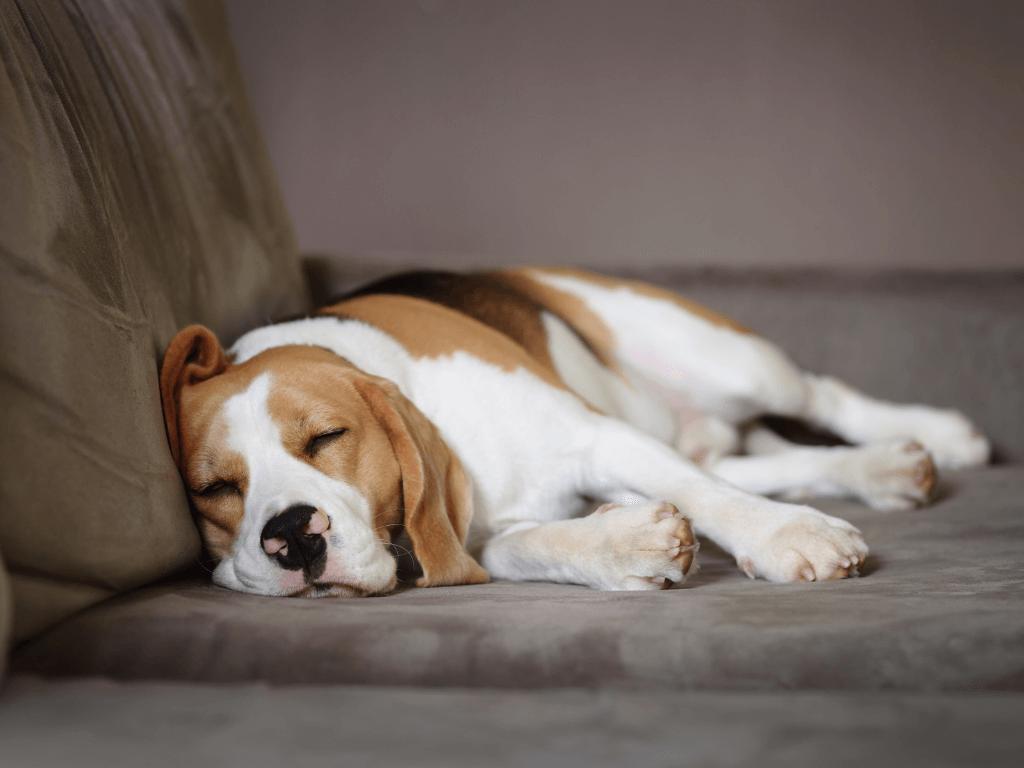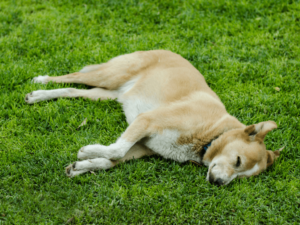Are Dogs Nocturnal?

Are Dogs Nocturnal?
This is a question that many pet owners may have asked themselves at some point. Nocturnality is a behavior commonly associated with certain animal species, such as bats and owls, but what about dogs?
In this article, we will explore the topic of whether dogs are nocturnal creatures or not. We will delve into what nocturnality means in the context of dog breeds, whether dogs exhibit nocturnal behavior, and what factors may influence their activity levels at night.
Join us as we shed some light on this fascinating topic.
What is Nocturnality in Dogs?
Understanding the behavior of dogs being active at night and sleeping during the day is essential to ascertain if they are nocturnal animals. Nocturnal activities in canines have been documented in many settings, such as when they are hunting or protecting their domain.
Nonetheless, external factors such as sound or temperature can also provoke this kind of behavior. It is significant to appreciate that not all dogs are nocturnal, and their conduct can change depending on breed, age, and personality.
Therefore, understanding what motivates a dog's nocturnal activity is essential to determine if dogs are nocturnal.
Unraveling the mystery of nocturnality in dogs is key to deciding whether they have the ability to adapt their sleep and activity patterns according to their surroundings.
This is a natural behavior that has been seen in various species, counting canines. Hence, comprehending what nocturnality implies for dogs is vital to find out if they are nocturnal or not.
Do Dogs Exhibit Nocturnal Behavior?
Canines, like many other creatures, possess exclusive slumbering habits that can alter depending on various factors. A popular inquiry about dogs is if they possess nocturnal behavior. Nocturnal behavior is when animals are energetic during the night and rest during the day.
So, do dogs have nocturnal behavior? While dogs are not nocturnal, they have the capability to be active during the night, especially if they are trained to do so. Dogs, like people, contain a natural circadian tempo that controls their sleep-wake cycles.
Variables such as breed, age, and activity level can also influence a dog's sleeping habits. For example, pups usually require more sleep than elder canines, and those who are more active may need extra time to recuperate.

Even if a dog is not educated to be nocturnal, it may still have some nocturnal behavior. This can include waking up and being lively during the night, or dozing for shorter periods and arousing more often.
It is essential to keep in mind that while dogs slumber, their sleep habits are contrary to humans. Canines possess shorter sleep cycles and spend more time in REM sleep, which is the stage of sleep where most dreaming occurs.
So, even if a dog is active at night, they still need enough rest to sustain their health and well-being. If you are concerned about your dog's sleeping patterns, it is always best to consult with a veterinarian to guarantee that your furry friend is obtaining the suitable amount and quality of sleep that they need.
Factors That Influence a Dog's Nocturnal Activity
The breed is a principal influence on a dog's nocturnal behavior. Certain types, such as the Siberian Husky and Alaskan Malamute, have been bred for night-time work, making them more active after dark.
Age also affects a pup's sleeping habits. Generally, puppies slumber more during the day and are sprightlier at night, due to their instinct of following their mother and keeping quiet during daylight to avoid potential attackers.
As they mature, their sleep cycles shift and they become more active in the daytime.
The environment a canine resides in can also play a role in their nocturnal activity. Dogs in urban areas may be more active at night due to the hustle and bustle throughout the day. In contrast, dogs living in rural areas tend to be more active during daylight, since their surroundings are usually tranquil.
Lastly, an owner's behavior can also influence a dog's nocturnal activity. If the owner is energetic by night, the dog is likely to follow suit and be more active at those hours.
Conversely, if the owner is more energetic during the day, the dog will likely be as well. Thus, it is essential for owners to keep their pet's natural instincts in mind and devise a schedule that is suitable for both them and their night dogs.
Can Dogs Be Taught to Be Nocturnal?
Training your pup to stay up through the night may seem intimidating, but it's achievable. To make this transition, slowly extend their bedtime bit by bit every couple of days. Keep them active and occupied during the evening hours to stop them from becoming bored or dozing off.
With persistence, consistency, and rewards, your canine companion can learn to adjust to a nocturnal sleep schedule that fits yours.
It's key to remember that not all dogs are appropriate for a nocturnal lifestyle. Certain breeds, such as greyhounds and basset hounds, are often more active during daylight. Furthermore, age, health, and temperaments can also influence a dog's capacity to adapt to a night-oriented schedule.
When making any shifts to their routine, it's best to consult with a vet and slowly progress through the changes to protect your pup's overall well-being.
Conclusion
In conclusion, while dogs are not typically considered nocturnal animals, they do possess the ability to adapt their sleep patterns depending on their environment and daily routine.
Factors such as breed, age, and lifestyle can all play a role in a dog's sleep habits. However, it is important to remember that a consistent sleep schedule is crucial for a dog's overall health and well-being.
Whether your furry companion is a night owl or an early bird, ensuring they get enough restful sleep is key to a happy and healthy life. So, let your dog sleep soundly and enjoy the benefits of a well-rested pup.

Leave a Reply